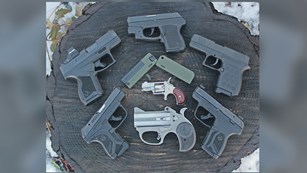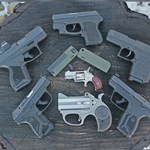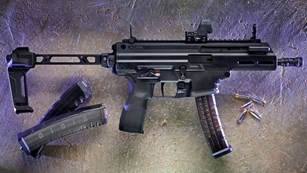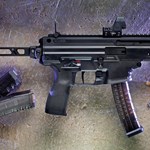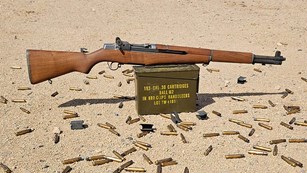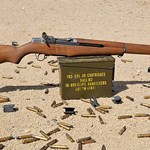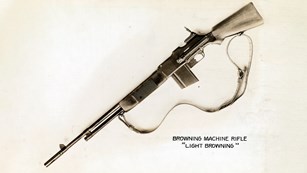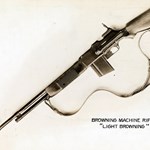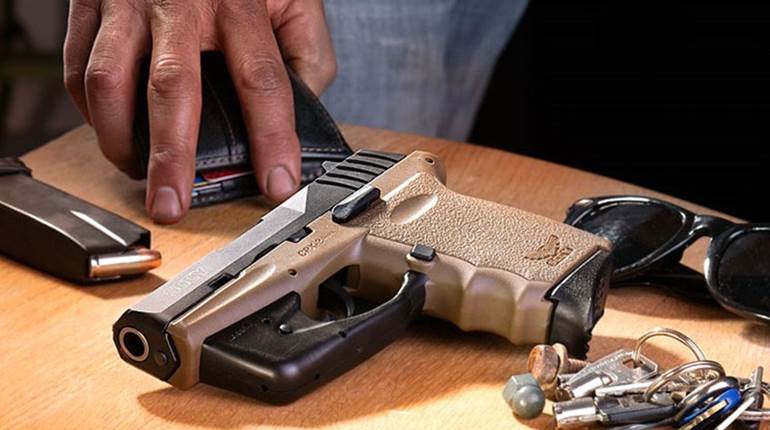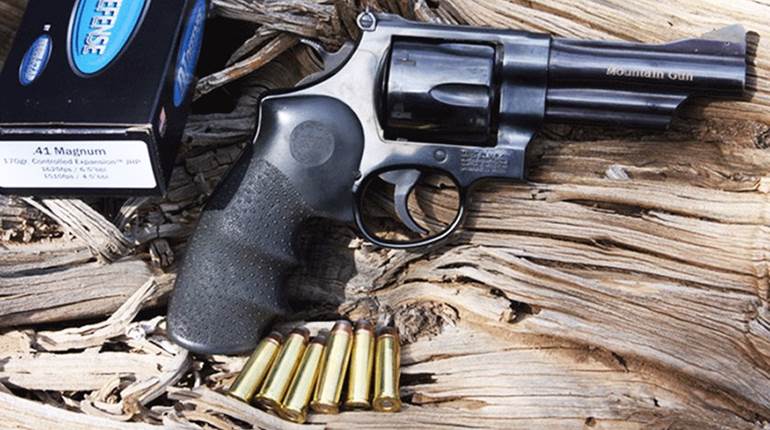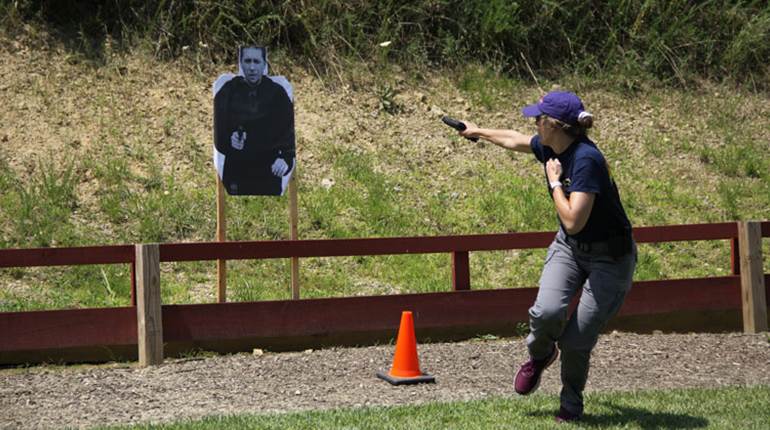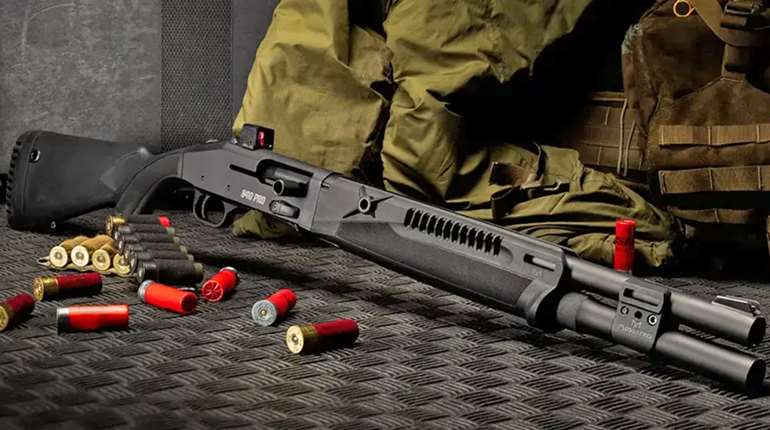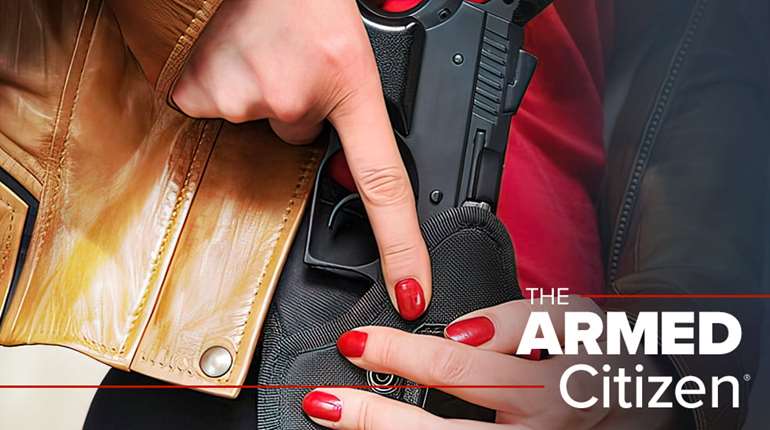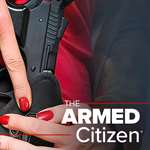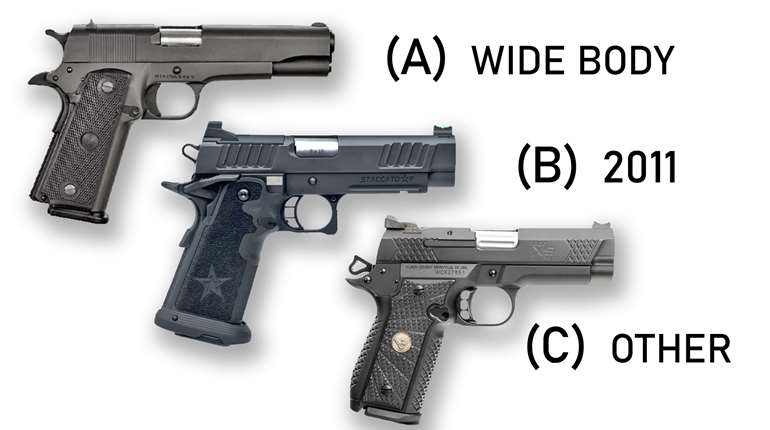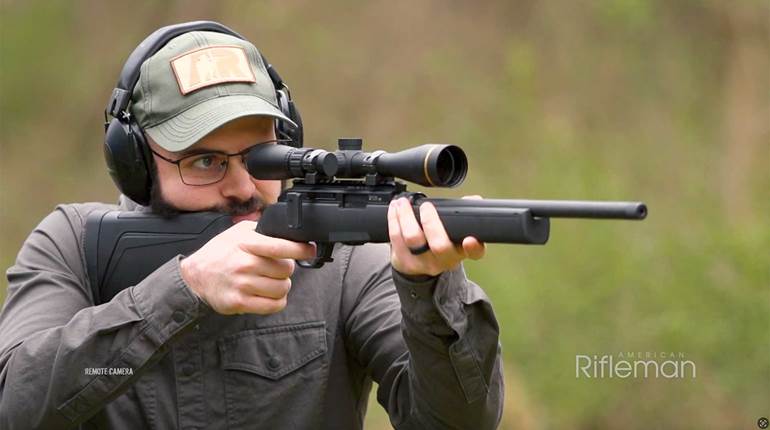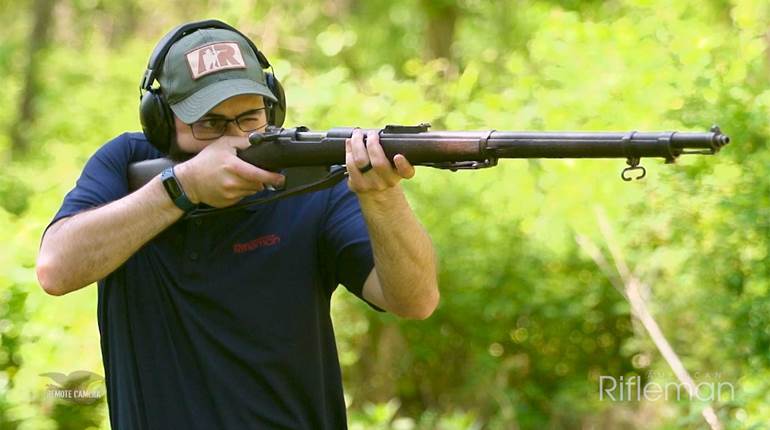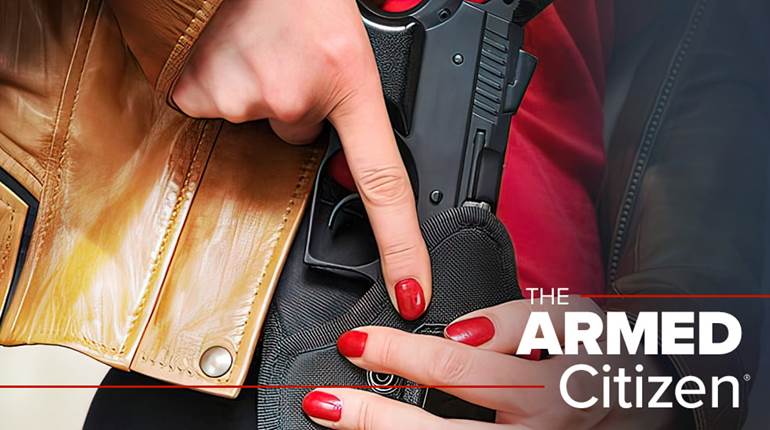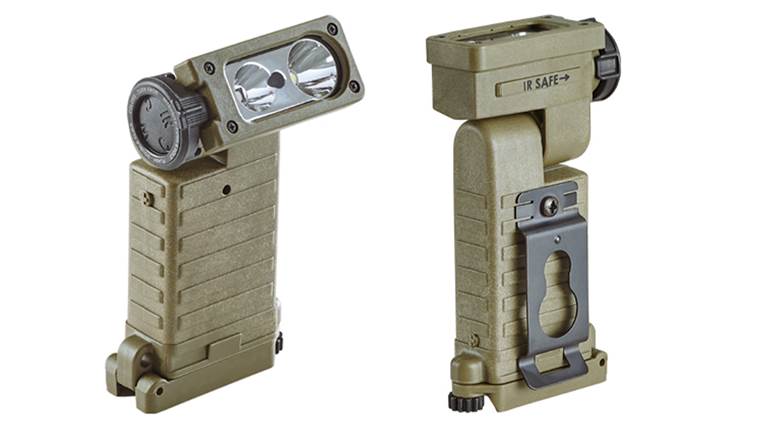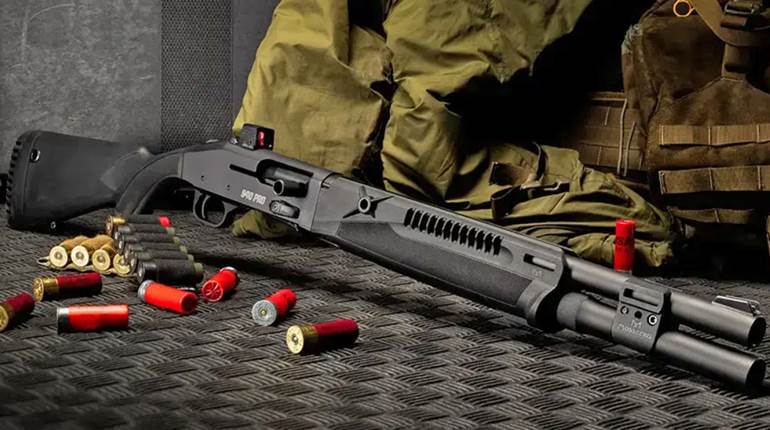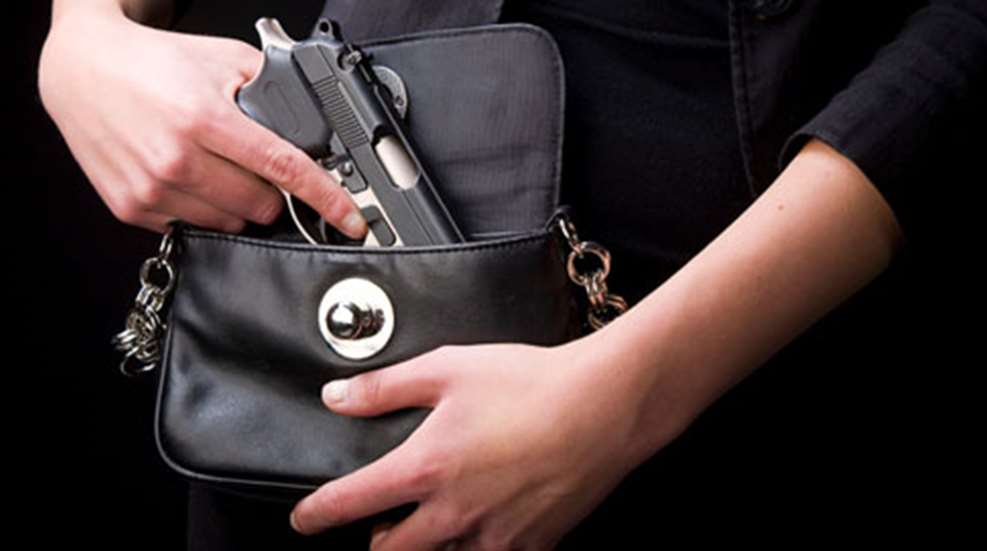
Having spent time on both sides of the gun counter, I've heard the following question time and again, "What's the best handgun for self-defense?" If we put this seemingly simple question into a different context, the problem of answering it becomes clear. What is the best food to eat? What are the best shoes to wear? What is the best car to drive? If people were simple, the answer to the question would be easy. However, each shooter has a unique set of preferences, circumstances and requirements that must be taken into consideration, and when the shooter is recoil sensitive, even more consideration must taken into account.
Spotting the Problem
When I worked behind the gun counter of a local sporting goods store, one of my co-workers thought he had the answer to every defensive handgun problem. In fact, he had just one answer: One gun fits all. It didn't matter whether the customer was a 300-pound football player or a 100-pound soccer mom, he handed out the same gun, over and over again. It was an excellent choice in terms of quality and performance, but, the handgun just was not a good fit for every customer.
I would watch as customers fumbled for controls they couldn't reach, struggled to rack the slide or made faces over the weight of the pistol when held at arm’s length. Sometimes they would ask to see something else, but he wouldn't show it to them. He would press the same gun back into their hands and explain that if they would just hold it long enough, the gun would fit them perfectly. If the customer wanted to talk about caliber options, well, that was just a waste of time since this gun was already chambered in the “correct” caliber. Needless to say, these people left the store looking perplexed and dissatisfied.
My goal was to help customers find that just-right gun. My job was made easier by working at a well-stocked store. Whether customers were looking for a gun for target shooting, pest control, hunting or self-defense, I usually had something to fit their needs. My favorite part of working in the store was seeing that little light go on in the customers’ eyes when they found a firearm that was a perfect fit. It was pleasant work most of the time, but I occasionally had customers whose situation would give my heart a little tug.
These customers would explain that they had a relative or very good friend who was in need of a defensive handgun. However, their loved one was small statured, elderly or suffered from physical limitations brought on by illness or injury. The customer would ask me the same, well-oiled question I had heard so many times before, but with an important twist, "So, what's the best handgun for self-defense that doesn't kick hard?" I understood their concerns, and I knew first hand just what they were looking for because I had already gone through the process with my wife, who had been injured in a car accident.
Choosing the Best Fit
A variety of handguns on the market today can be used in a defensive role by those who are dealing with physical challenges. However, most low-recoil defensive handguns are seen as too large for concealed carry, too small for use as a duty pistols and are chambered in calibers often rejected as being too small for self-defense.
When considering the purchase of a low-recoil defensive pistol, we have to ask some important questions. Is a bigger handgun the better handgun if our loved one can’t tolerate the recoil? Is using the correct model of handgun as important to their self-defense plan as finding a model they will practice with? Should we write off pistols that our friends or family would buy and shoot on a regular basis because the pistol is chambered in a low-power caliber? When we take a hard look, we all know someone who would benefit from a low-recoil defensive pistol. All they need is the opportunity to find a pistol that’s a good fit for them.
Researching low-recoil defensive pistols means working outside of the traditional self-defense box. So, what qualities should we look for? Working with the AmericanRifleman.org staff, we developed a measuring stick for defensive handguns with less kick, then selected examples that we felt were a good fit for this category.
Keep in mind that the goal of this exercise was not to identify the best handguns for self-defense, but to find a variety of handguns with features to suit shooters with special considerations. Our review process included consideration of the following pistol features:
Caliber
Recoil, or the fear of it, is always high on the list of reasons why non-shooters stay non-shooters. For some, this fear can be overcome with positive shooting experiences and regular practice. However, for those with physical limitations, recoil is a serious concern. Most self-defense Gurus set 9 mm and .38 Spl. as the minimum defensive caliber choices, then invite their students to work up to the largest caliber they can successfully manage.
For this review, we had a different goal in mind. We set aside more powerful pistol cartridges in search of calibers that recoil-sensitive individuals would be able to practice with on a regular basis. Proper shot placement is the key to a successful defense plan, and shot placement is developed with regular practice. After some serious consideration, we set .380 ACP and .327 Fed. as our maximum low-recoil defensive calibers, with .22 Magnum (WMR) as the minimum. While the .22 Magnum is a light round for defensive applications, it has enough power to fill the better-than-no-gun-at-all niche.
Ammunition Capacity
When using smaller, lighter calibers for self defense, having more rounds to work with is important. Low-recoil defensive pistols with large ammunition capacities were generally favored over similar pistols with lower capacity. For those who prefer the benefits of defensive revolvers, we set the ammunition capacity at a minimum of six rounds. This ensured we didn’t ignore some excellent wheelguns.
Size & Weight
This is possibly the most subjective criteria we considered. A pistol of greater size and weight can reduce felt recoil, but beyond a certain point, the pistol becomes too heavy for some shooters to use comfortably. A smaller, lighter pistol is easier to hold at arm’s length and to manipulate, but as the pistol shrinks, the felt recoil increases. We decided the rule-of-thumb would be to look for pistols in the 20- to 25-ounce weight range.
This range, especially for softer shooting calibers, seems to hit the sweet spot between having enough pistol weight to offset felt recoil, while still being light enough to handle with relative ease. We found a few low-recoil pistols in this review that operate outside of this weight range, but to the benefit of the shooter.
Sights
A large, easy-to-see sighting system is an important feature of any defensive handgun, but the sights become critical when shooting small-bore calibers. It’s more than likely that someone using a low-recoil pistol for self-defense will have to fire multiple well-placed shots in order to successfully protect themselves. All of the pistols we selected come from the factory with good sights, and some even come off of the assembly line with night sights or large, bright fiber optics.
Price
As I’ve worked with people looking for low-recoil defensive handguns, price has almost always been an issue. Usually the buyer or recipient of the pistol has been on a tight budget. The knot in their purse strings has been caused by any number of financial challenges, including prolific medical bills or a fixed income. Luckily for us, we currently have a market place filled with a variety of pistols for recoil-sensitive shooters. Though we didn't exclude any pistols because of price, we did strive to include several options currently available in the $500 price range.
Selecting a handgun for self-defense is always an exercise in compromise. As I mentioned before, each shooter has a unique set of preferences, circumstances and requirements that have to be taken into consideration. The right handgun for you might not be a good fit for someone else. As I look back on my personal experiences, I believe that low-recoil defensive pistols have an important role to play in the self-defense market. Though these pistols fall outside of the current self-defense mindset, they may represent the best, and perhaps the only, defensive pistol options available for someone we care about.
